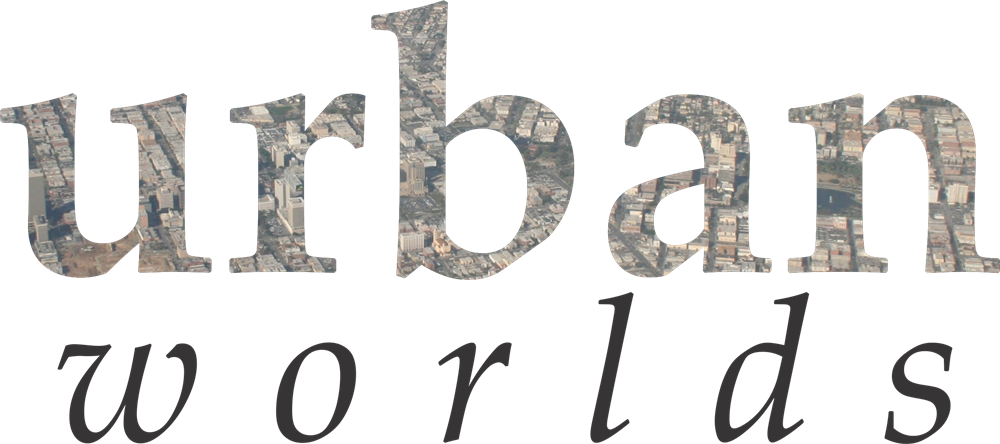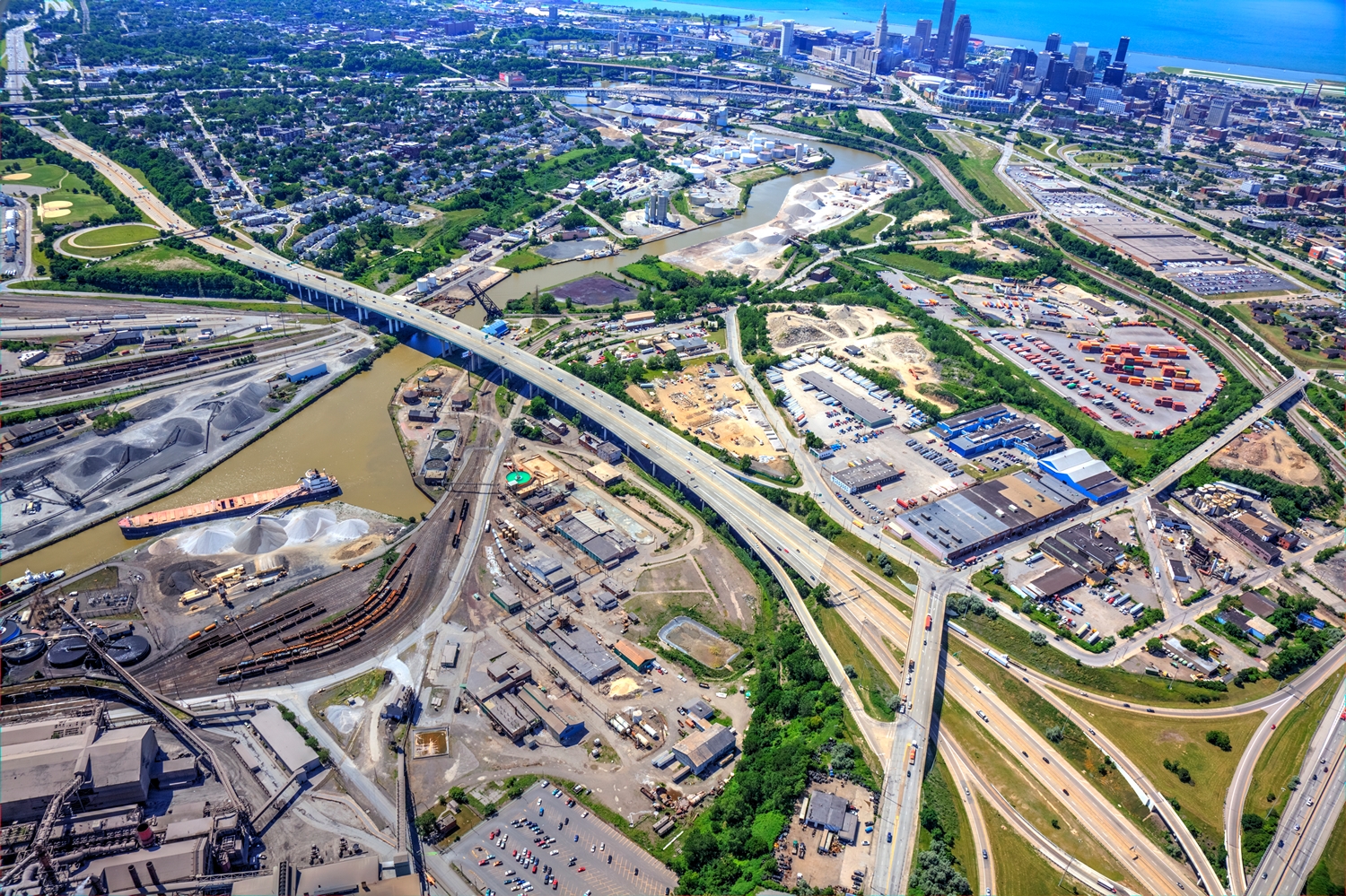


What is Urban Geography?
This course is an introduction to urban geography. Geography is the study of the physical and human/social environments of the Earth, while urban inquiry focuses on the people and processes of cities and towns -- which now account, for the first time in human history, for a majority of the world's population. Urban geography, then, is concerned with the relations among people, and between people and their environments, in cities and towns across the world.
Such a simple definition is indeed helpful, but it's only a first step. "All boundary-drawing exercises are fraught with difficulties," Derek Gregory (2009, p. 287) reminds us, "and intellectual landscapes are no exception." Consider both terms in the phrase "urban geography." The "urban" is often a contested category: for some, the term includes a wide range of comparatively dense settlements, from big cities all the way to small towns and even low-density suburbs out on the edges of cities; for others, the word is only useful if it refers to the most dense parts of the biggest cities with millions of people. There is also some disagreement, moreover, on what is distinctively and fundamentally urban about the important social, economic, and political changes of our era: yes, we see a lot of fascinating things happening in cities, but does the city change any of the processes underway in society? Despite these disagreements -- and perhaps because of them -- the "urban" is at the heart of the most urgent questions being asked in many fields today. One of the most prominent urban geographers sums up the history this way:
"The study of urban places is central to many social sciences, including geography, because of their importance not only in the distribution of population within countries but also in the organization of economic production, distribution and exchange, in the structuring of social reproduction and cultural life, and in the exercise of political power. Sub-fields of the different social science disciplines were established in the decades after the Second World War to study these separate components, such as urban anthropology, economics, geography, politics, and sociology; later attempts were made to integrate these under the umbrella title of urban studies." (Johnston 2000, p. 870).
The second part of the phrase -- geography -- brings us into interesting territory. Many people don't really understand what geography is, other than the elementary-school memorization of countries, capitals, and commodities. Don't we already know where everything is? But even once we get past those widespread popular misconceptions, it can still be rather difficult to categorize geographers. "Like other aspects of human geography," Paul Knox and Linda McCarthy write, "urban geography is concerned with 'local variability within a general context.' This means that it is concerned with an understanding of both the distinctiveness of individual places (in this case, towns and cities) and the regularities within and between cities in terms of the spatial relationships between people and their environment." (Knox and McCarthy 2005, p. 2, citing Johnston 1984, p. 444). Environment means both the physical-natural and human-social worlds, reflecting the shared heritage of human and physical geography. In turn, the human-physical duality in the field hints at the sense of ambiguity that you probably detect when you talk with geographers: they're pretty hard to pigeonhole, not only because some of them study physical phenomena (climate, rivers, mountains, forests) while others focus on human processes (social, economic, political). But they also seem to go about their work in very different ways, using different tools, languages, and styles of communication. As a result, geographers might very well be best described as undisciplined members of an elusive discipline. If you're a bit unsettled by all this ambiguity, you're in good company. The eminent historian of geography David Livingstone describes efforts to summarize the field this way:
"Because the term 'geography' means, and has meant, different things to different people in different times and places, there is no agreed-upon consensus on what constitutes the project of writing the history of this enterprise. Moreover, while the story of geography as an independent scholarly discipline is inescapably bound up with the history of the professionalization of academic knowledge since around the middle of the nineteenth century, it is clear that the history of geography as a discourse not only operates without such constraints but also reaches beyond the historical and institutional confines of the modern-day discipline. Of course geography as discourse and discipline are interrelated in intimate ways -- one might even say that the purpose of a discipline is precisely to 'discipline' discourse." (Livingston 2000, p. 304).
In this course, our main goal is "to make sense of the ways that towns and cities have changed and are changing, with particular reference to the differences both between urban places and within them." (Knox and McCarthy 2005, p. 2). We tackle four distinct, and yet inter-related, sets of questions.
First, how do cities and other kinds of human settlements vary across time and space? How has the evolution of cities reflected prevailing historical conditions? What are the crucial differences between cities within particular regions or countries, and between different countries? How do certain cities reflect the distinctive circumstances of their geographical context?
Second, what regularities unite seemingly different cities? What are the similarities in patterns, processes, and relationships within different cities, and in networks between cities?
Third, how do social relations shape the form of the city? How are particular activities, land uses, and social groups distributed within and among cities?
Fourth, how does the form of the city shape social relations? How do spatial constraints and locational considerations, for example, influence the way that people decide where to live and where to work? How do the geographies of cities created in previous generations influence the decisions of today's corporations, investors, and governments as they gradually create new urban geographies?
References
Derek Gregory (2009). "Geography." Derek Gregory, R.J. Johnston, Geraldine Pratt, Michael Watts, and Sarah Whatmore, eds., The Dictionary of Human Geography, Fifth Edition. Chichester, U.K.: Wiley-Blackwell, 287-295.
Ron J. Johnston (2000). "Urban." In R. J. Johnston, Derek Gregory, Geraldine Pratt, and Michael Watts, eds., The Dictionary of Human Geography, Fourth Edition. Oxford: Blackwell, 870-872.
Ron Johnston (1984). "The World is Our Oyster." Transactions of the Institute of British Geographers, NS 9(4), 443-459.
Paul Knox and Linda McCarthy (2005). Urbanization, Second Edition. Upper Saddle River, NJ: Pearson/Prentice-Hall.
David N. Livingston (2000). "History of Geography." In R. J. Johnston, Derek Gregory, Geraldine Pratt, and Michael Watts, eds., The Dictionary of Human Geography, Fourth Edition. Oxford: Blackwell, 304-308
Geography 350
Welcome to the urban world!
More than a few years ago, I spent late-night hours watching a television station broadcasting out of Northern Minnesota. One of their most reliable advertisers was a gruff bankruptcy lawyer with a cheap suit, a slightly menacing look on his face that said he knew a shady business a bit too well, and a well-chewed cigar hanging precariously on the right side of his lower lip. He looked straight into the camera as he described how he could help you if you found yourself in a financial disaster, and then, in a tobacco-conditioned deep voice, he'd end the advertisement with a reassuring smile, and say, "This is all I do, and I do it well!" I could not help but admire a guy who had so clearly found his calling.
Replace bankrupcty law with the study of cities, and get rid of the cigars, and you've got a fair approximation of what I aspire to. This is all I do, and ... well, whether I do it well is up to you!
In this course, my goal is to ignite your passion for the urban worlds that reflect and shape our lives. Our particular disciplinary approach is geography. Geography is all around us, and we are now living through a dramatic worldwide transformation. Only a few years ago, for the first time in human history, the proportion of the world's people living in urban areas crossed the halfway mark. You and I are thus part of the first generations of humans who have ever lived in an urban world (even though it is also true that cities have been around for literally thousands of years, and that many people in ancient cities lived very local lives in their own, smaller "urban worlds.") Nearly all of the processes we tend to think of as separate domains -- economics, political science, sociology, communications and media studies, planning, engineering, the law -- are all being urbanized, in a profound series of transformations that the French philosopher Henri Lefebvre diagnosed as "planetary urbanization." Inside anyone with an interest in what's going on in the world, therefore, beats the heart of an urban geographer. I hope you can find something in this course that makes that heart beat faster -- and longer. When I consider the longevity and creativity of some of our most prominent urbanists -- Jane Jacobs (1916-2006), Lewis Mumford (1895-1990), David Harvey (1935-), Susan Fainstein (1938-), Bill Bunge (1928-2013), Peter Marcuse (1928-), Susan Hanson (1943-), and Peter Hall (1932-2014) -- I'm tempted to offer a provocative hypothesis: a love of urban geography helps you live longer!
In this course, we'll study the origin and evolution of cities, the development of networks of cities bound together by trade, migration, communication, and competition, the dynamics of economic restructuring in urban regions, and the fascinating re-sorting that goes on inside cities and suburbs.
Welcome to the class. Please remember that the lecture notes are subject to change until the date of the lecture itself. Every day's headlines are packed full of exciting (and sometimes frightening!) new developments in urban geography, and thus I'm always trying to update and refine things, often right up to a few moments before I walk into the day's scheduled class.
"This may be the best of times to be an urban geographer. ... Never before has a critical spatial perspective been so widespread, so focused on cities and urban life, and so generative of new ideas about economics, politics, culture, and social change more generally. Today, no scholar of any stripe can afford not to be, to some degree, an urban geographer."
Ed Soja (2011). "Beyond Postmetropolis." Urban Geography 32(4), 451-469, quote from p. 451.
Urban Geography Journals
Geographers focusing on cities publish in many different kinds of books and journals. Here's a small sample of some of the best places to find the latest advances in our thinking about cities and urban life. Please note that you may need to be working on a computer at UBC, or through a Virtual Private Network, for these links to give you full access to the articles.

Hong Kong SAR, January, 2010 (Elvin Wyly)
CopyLeft 2019 Elvin K. Wyly
Except where otherwise noted, this site is

"The urban condition of multiplicity, simultaneity, performativity, and juxtaposition constitutes the ideal possibility for creative democracy."
Robert W. Lake (2017). "On Poetry, Pragmatism, and the Urban Possibility of Creative Democracy." Urban Geography 38(4), 479-494, quote from p. 486.
"The study of urban theory teaches us that ideas can literally shape the world in which we live and as the abundant resources that city builders once took for granted diminish, applying the knowledge of how to live peacefully and sustainably will be essential if our urban planet is to thrive into the next century."
Simon Parker (2015). Urban Theory and the Urban Experience: Encountering the City, Second Edition. London and New York: Routledge, p. xxiv.




















